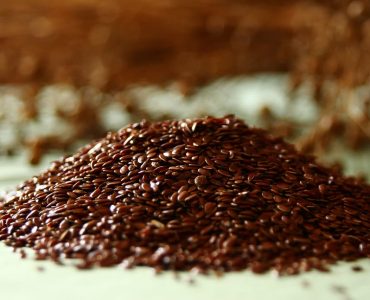Your digestive system is the most sensitive and reactive part of your body. It is the interface between the food you eat and your insides and will let you know whether what you are eating or drinking is right for you. As your gut has more immune cells than the rest of your body, any reactions to what you eat can shut down the complex sequence that leads to proper digestion, absorption and elimination.
People with a food sensitivity problem will usually be given a diagnosis of Irritable Bowel Syndrome by their G.P. and little else. They may experience symptoms such as bloating, stomach cramps, constipation, diarrhoea. However a variety of health problems such as headaches and migraines, weight problems, depression, insomnia, asthma, anxiety, chronic fatigue, arthritis, skin problems, pre-menstrual syndrome, generalised aches and pains can also be due to inflammatory reactions in the body, arising from incomplete digestion of food.
Food intolerance and stress can lead to leaky gut syndrome. This is where “holes” are created in the wall of the intestines and undigested particles of food leak into the bloodstream. As undigested particles of food leak through the walls of the intestine, they are grabbed by antibodies forming an Immune Complex so that Phagocytes, your “search and destroy” cells can dispose of the problem. However, when the number of Immune Complexes reaches a critical point the immune antibody system gives up and shuts down. The Immune Complexes then find their way into joint and organ tissues and set up inflammation. Capillary leakage from inflammation results in fluid retention in subcutaneous tissues, causing the appearance of cellulite!
Once Immune Complexes settle into tissues, your body brings out the big guns – the Killer Enzymes to seek out and destroy the problem. However, the Killer Enzymes don’t just target the Immune Complex, they also attack the tissues they are embedded in leading to an exacerbation of inflammatory conditions.
If you suffer from on-going health problems it is worth exploring the possibility that you are intolerant to some food(s) in your diet. The most common problem foods seem to be wheat and dairy produce.
Once you reach adulthood, you don’t make the digestive enzyme lactase and so can’t digest milk. Because milk is very mucous forming it can actually cause a barrier to the absorption of nutrients in the intestines. It causes stomach acid to be neutralised and so the body is not fully able to digest the protein in milk. The sugar in milk may encourage unfriendly bacteria and Candida in the bowel, again affecting absorption. Anyone with asthma should avoid cows milk due to the tendency for it to produce mucous throughout the body.
The wheat protein gluten is the major culprit in problems relating to wheat. Some level of gluten intolerance can actually be found in the majority of people, and is linked to a broad spectrum of symptoms. Gluten is a sticky substance, resembling the consistency of chewing gum. It is gluten that gives loaves that springy, airy texture so much in demand, and that is why hard wheat with its high gluten content is used for baking.
The gluten content of refined flours is also higher, hence wholemeal loaves are more dense. Being such a sticky, elastic substance it is quite hard to digest. If undigested gluten finds its way to the large intestine it can bind with the mucosa to form a sticky mass that lines the colon wall. This makes an impermeable barrier both ways; hindering secretions and nutrient absorption. Lack of secretions mean reduced lubrication, so transit time for food around the colon is slowed, the colon, already narrowed by the glutinous layer, can simply grind to a halt. It is when this occurs we see ballooning of the colon and diverticuli, this mass will putrefy, leaching toxins into the blood stream. Needless to say there can be little or no absorption of nutrients.
This is why the advice to eat more bran and brown bread often back fires. While the amount of fibre is important, the kind you eat is equally important. Contrary to the popular image of fibre as mere ‘roughage’, it can actually absorb water and as it does so, it makes faeces bulkier, less dense and easier to pass along the digestive tract. This reduces the amount of time food waste spends inside your body and reduces the risk of infection or cell changes due to carcinogens that are produced when some foods, particularly meat, degrade. Bulkier faeces mean less chance of a blockage or constipation.
Some fibres are much more water-absorbent than others. While wheat fibre swells to ten times its original volume in water, glucomannan fibre, from the Japanese konjac plant, swells to one hundred times its volume in water (konjac fibre is available as a supplement). Highly absorbent types of fibre not only bulk up foods, they can help to control appetite and play a part in weight maintenance. The soluble fibres in oats and flax seeds are particularly beneficial. You can help ‘bulk up’ these fibres by either soaking a tablespoon of flax seeds in water overnight, then drinking the lot, or putting a tablespoon of ground flax seeds in a bowl of oats and soaking for half an hour before eating for breakfast. These can help you become more regular. The other critical ingredient is drinking the corect amount of water for your body weight.
Some people can’t digest beans. Most beans contain a type of sugar called oligosaccharides that are difficult for the human digestive system to digest. These oligosaccharides are largely broken down in fermented soya products (eg miso, tempeh, natto), so they don’t produce gas. Tofu, made from the curd (oligosaccharides concentrate in the whey), should also be less gas producing. But foods containing soya protein, or kidney beans, are notoriously flatulence producing. The solution here is to take a digestive enzyme containing alpha-galactosidase.
Another type of oligosaccharide that’s hard to digest is glucosides, found predominantly in cruciferous vegetables such as cabbage, kale, cauliflower, broccoli and Brussel’s sprouts. A digestive enzyme containing amyloglucosidase (also called glucoamylase) is a wise precaution! Solgars Gold Specifics Vegan Digestive Modulators contain both of these enzymes.
All these foods, if not digested by you, will be digested by the bacteria within you, producing gas. For some people soya is the worst bean, because it contains protease inhibitors. These inhibit your protein digesting enzymes from working at full power. In the case of soya, fermenting breaks down the protease inhibitors, hence making them easier to digest. The Solgar Vegan Digestive Modulator will help.
All beans and grains, including wheat, contain lectins which can damage your digestive tract and trigger an immune response. Soaking, fermenting and cooking breaks down lectins and provided the quantity is not overwhelming, a healthy digestive tract can deal with lectins. However, the more you eat, the greater the chances of developing an allergic reaction. While your digestive tract can shut down digestion and promote elimination when exposed to too many irritating factors (so leading to loose bowels) for some people the opposite occurs. Wheat, high in gluten, can be particularly constipating.
If constipation is a problem for you Lepicol can help to gently re-educate your bowels. Lepical contains fructooligosaccharides(FOS), a type of complex carbohydrate that helps keep moisture in the gut and also stimulates production of healthy gut bacteria. This keeps faecal matter softer and easier to pass along. It also contains psyllium husks which help bowel movement.
If your digestive system is working well, you should feel the urge to open your bowels after every meal. As the stomach valves open up this should trigger the opening of the ileo-caecal valve (ICV), that separates the small from the large intestine. At the very least, you should have a bowel movement every day.
Nutritional Supplements that could help. (Refer to the individual supplement for cautions in use.)
| Supplement/Herb | What it does | Dosage |
|---|---|---|
| Betaine Hydrochloride and Digestive Enzymes | These enzymes are often deficient in people with food allergies. Stomach acid is required for the vital first step of protein digestion, therefore low stomach acid can lead to the development of allergies, where the immune system is triggered by incompletely digested proteins. A lack of pancreatic enzymes also contributes to incomplete protein digestion. | As per manufacturer’s directions |
| L-Glutamine | The amino acid glutamine is a major component and energy source of the intestinal lining and helps to restore proper integrity to damaged tissue. | 2000 – 5OOOmg per day (away from food) |
| Probiotics | Probiotic bacteria help control the colonies of harmful intestinal bacteria and yeasts/fungi that can damage the intestinal wall and lead to imbalances in immune factors in the gut, potentially causing more allergy-triggering food proteins to be absorbed. | 5-20 billion organisms per day |
| Quercetin | Can help to reduce damage to the intestinal wall and inhibit the release of inflammatory compounds such as histamine and leukotrienes. | 500- lOOOmg per day |
Discovering and eliminating offending food allergens, is also likely to improve overall health. The most reliable food intolerance tests involve taking a pin prick blood sample which is tested for the presence of IgG antibodies. If you think you may have a food intolerance you can buy a DIY test kit to test yourself at home.
Homoeopathic Remedies which may help.
- Arsenicum album
- Calcarea carbonica
- Calcarea phosphorica
- Carbo vegetabilis
- Ignatia
- Lycopodium
- Nux vomica





